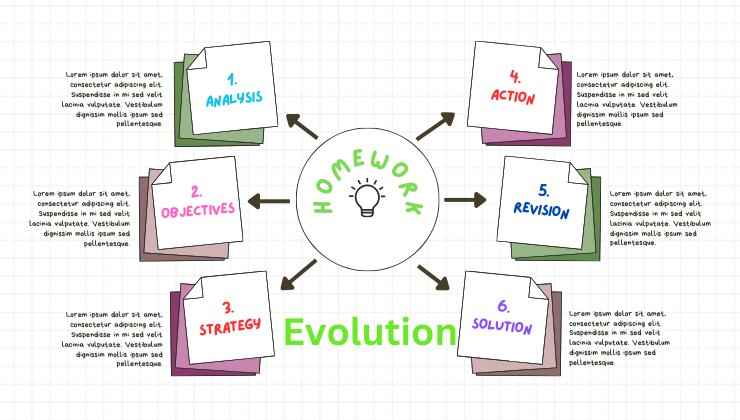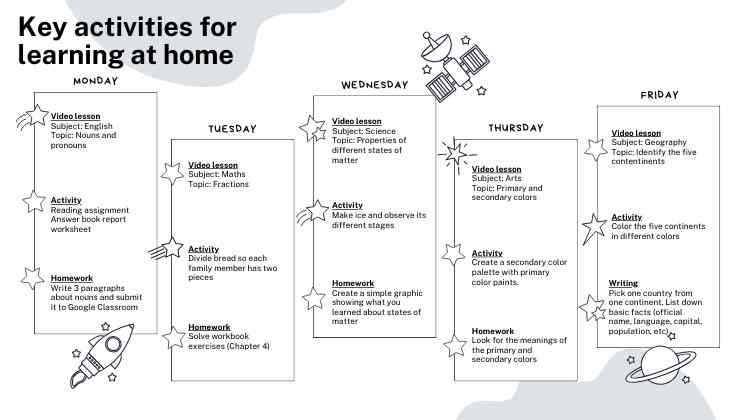Who Invented Homework and Why? Homework has become an integral part of the education system around the world, but have you ever wondered who started this practice and why it was introduced? In this article, we look at the history of homework, its origins, and the reasons for its creation.
How to convince your teacher to accept late homework.
Introduction
Defining Homework
In today’s educational landscape, homework is an integral part of a student’s life. It serves as a tool for reinforcing classroom learning, promoting responsibility, and sometimes even stirring controversy. Have you ever wondered, however, who and why homework was invented? Let’s embark on a historical journey to uncover the origins and evolution of homework, exploring its purpose and the controversies it has sparked.
Other Definition
Homework, as we know it today, refers to tasks assigned to students by their teachers to be completed outside of regular school hours. These tasks can include reading assignments, problem sets, essays, and various projects. Homework plays a crucial role in the educational process, but its origins and purposes have evolved significantly over time.
Table of Contents
The Origins of Homework
Homework, as we know it today, has a long and fascinating history. Its roots can be traced back to ancient civilizations, where scholars and students engaged in various forms of after-school assignments. Here, we’ll explore the earliest instances of homework.
Homework’s roots can be traced back to ancient civilizations, where it had different purposes and forms. Who Invented Homework and Why?
The Birthplace of Homework
Homework, in its essence, has been around for centuries. It’s difficult to attribute its invention to a single person or era, but we can trace its roots back to ancient civilizations.
The concept of homework was born in ancient civilizations, with each culture having its unique approach to it. Who Invented Homework and Why?
Ancient Egypt
In ancient Egypt, education was highly valued, and students were expected to engage in learning both in and out of the classroom. Students were assigned tasks such as writing hieroglyphics, practicing mathematics, and memorizing texts, marking the earliest known forms of homework.
Ancient Greece: Aristotle’s Influence
The ancient Greeks, particularly the philosopher Aristotle, believed in the value of repetition and practice to solidify learning. Students were assigned exercises in rhetoric, mathematics, and music, paving the way for the development of structured homework.
Evolution in the Middle Ages
Homework started to take a more recognizable form during the Middle Ages. Monasteries and religious schools required students to participate in private study outside regular class hours. Who Invented Homework and Why?
Ancient China’s Approach to Homework
In ancient China, homework took a different form, with a focus on memorization and the recitation of classical texts. This approach aimed to instill Confucian values and knowledge in students, emphasizing the importance of rote learning.
Monastic Education and Homework
During the Middle Ages, monastic education played a significant role in Europe. Monasteries served as centers of learning, and monks assigned written tasks to novices as a means of spiritual and intellectual development. Who Invented Homework and Why?
Homework in the Renaissance Period
The Renaissance marked a revival of learning and scholarship, and homework became an integral part of education. Students were tasked with copying and translating classical texts, contributing to the preservation of knowledge from antiquity.
The Evolution of Homework
As time passed, homework continued to evolve, adapting to the changing educational landscape and societal needs. Here are some key milestones in the evolution of homework.

The Industrial Revolution
There were major changes in education as a result of the Industrial Revolution. With the rise of factories and urbanization, schools needed to prepare students for a rapidly changing world. Homework became a means of reinforcing skills and preparing students for the workforce. Who Invented Homework and Why?
Changing Roles of Homework
Societal and educational changes resulting from the Industrial Revolution were profound. Homework began to shift from a religious and classical focus to practical exercises, reflecting the changing needs of an industrialized world.
Homework in the Age of Enlightenment
The Age of Enlightenment emphasized reason, science, and individualism. Homework assignments reflected these ideals, promoting critical thinking and analysis among students.
The 19th Century: Who Invented Homework and Why?
Rise of Public Education
The 19th century saw the rise of public education systems worldwide. Homework became more standardized and widespread, as governments sought to educate their populations for industrial and civic purposes.
Homework as a Form of Discipline
Homework was also used as a form of discipline during this period, reinforcing societal norms and values. Students were expected to complete tasks as a means of character development.
Homework in the Modern Era
Homework in the 20th Century
The 20th century witnessed significant changes in education, including the introduction of new subjects and teaching methods. Homework assignments diversified, reflecting these changes.
Homework in Contemporary Education
In today’s educational landscape, homework remains a common practice. However, its role and impact continue to be subjects of debate and research. Homework has evolved to encompass a wide range of assignments and purposes.
The Purpose of Homework
Homework serves multiple purposes in the education system.
Skill Development
Homework serves as a platform for students to develop essential skills such as time management, research, and problem-solving. These skills are crucial for success in both academic and professional settings.
Reinforcement of Learning
Homework reinforces the concepts taught in the classroom, providing students with opportunities to apply their knowledge independently. It helps solidify their understanding of the material. Who Invented Homework and Why?
Preparation for Tests and Exams
One of the primary purposes of homework is to prepare students for tests and exams. It allows them to practice and review course material, improving their chances of success in assessments.
Encouraging Responsibility and Time Management
Completing homework assignments teaches students responsibility and time management skills. They learn to prioritize tasks and meet deadlines, valuable life skills. Who Invented Homework and Why?
Controversies and Criticisms
Despite its benefits, homework has faced criticism for its potential negative effects, including increased stress, reduced family time, and inequities in access to resources. Critics argue that it may not always align with the needs and abilities of individual students.
Homework Around the World
Homework Practices in Different Countries
Homework practices vary significantly from one country to another. Cultural norms, educational philosophies, and government policies influence the amount and type of homework assigned. Who Invented Homework and Why?
International Perspectives on Homework
International organizations and researchers have studied homework practices around the world, offering insights into the global educational landscape.
Homework and Technology

The Impact of Technology on Homework
Advancements in technology have transformed homework practices. The digital age has ushered in new possibilities for online learning, research, and collaboration.
Online Learning and Homework
The COVID-19 pandemic accelerated the adoption of online learning, raising questions about the future of traditional homework and the role of technology in education.
Homework’s Effect on Students
Positive Effects
Research suggests that homework can have positive effects on students’ academic performance and development. It can enhance their learning and retention of information.
Negative Effects
On the flip side, excessive homework can lead to negative consequences, such as stress, sleep deprivation, and a decline in overall well-being. Who Invented Homework and Why?
Striking a Balance
Educators and parents grapple with the challenge of striking a balance between assigning meaningful homework and ensuring that students have time for other activities and relaxation.
| Homework’s Effect on Students | Description |
| Positive Effects | Research suggests that homework can have positive effects on students’ academic performance and development. It can enhance their learning and retention of information. |
| Negative Effects | On the flip side, excessive homework can lead to negative consequences, such as stress, sleep deprivation, and a decline in overall well-being. |
| Striking a Balance | Educators and parents grapple with the challenge of striking a balance between assigning meaningful homework and ensuring that students have time for other activities and relaxation. |
The Role of Parents in Homework
Parental Involvement
Parents play a crucial role in supporting their children’s homework efforts. Their involvement can have a significant impact on a student’s success.
Balancing Homework Help and Independence
Finding the right balance between providing assistance and allowing students to develop independence is a key consideration for parents. Who Invented Homework and Why?
Famous Homework Advocates and Opponents
Prominent Figures in the Homework Debate
Throughout history, notable educators, psychologists, and policymakers have voiced their opinions on homework, contributing to the ongoing debate.
Homework in Pop Culture
Homework in Literature and Film
Homework has found its way into various forms of media, from books and movies to television shows. It often serves as a backdrop for storytelling and character development.
The Portrayal of Homework in Media
The media’s portrayal of homework can influence public perception and attitudes toward this educational practice. Who Invented Homework and Why?
Homework’s Future
Trends in Homework Practices
As education continues to evolve, so too will homework practices. Trends such as personalized learning and the integration of technology will shape the future of homework.
The Debate over Homework’s Continuation
The debate over the necessity and effectiveness of homework will persist, with educators, parents, and policymakers seeking to find the right balance.
Homework and Educational Systems
Homework Policies around the World
Countries have varying policies and guidelines regarding homework. These policies reflect cultural values and educational priorities. Who Invented Homework and Why?
The Relationship between Homework and Student Performance
Research continues to explore the link between homework and student performance, shedding light on its impact on academic achievement.
Homework Alternatives

Flipped Classroom Model
The flipped classroom model is an alternative to traditional homework, where students engage with new material at home and practice it in class.
Project-Based Learning
Project-based learning emphasizes hands-on projects and real-world applications, reducing the reliance on traditional homework assignments.
Personalized Learning Plans
Tailoring education to individual students’ needs can lead to a reimagining of homework, with assignments designed to meet specific learning goals. Who Invented Homework and Why?
The Psychology of Homework
Motivation and Homework
Psychological factors, such as motivation and self-regulation, play a crucial role in a student’s approach to homework. Who Invented Homework and Why?
The Cognitive Science Behind Homework
Understanding cognitive processes can inform the design of effective homework assignments that promote learning and retention.
FAQs
Who deserves credit for inventing homework?
In the right circumstances, homework can be useful.
What was the original purpose of homework?
Homework initially served as a means to reinforce learning and develop responsibility in students. Who Invented Homework and Why?
Why is homework a topic of controversy?
Homework is controversial due to concerns about excessive workloads and inequality in access to Resources. Who Invented Homework and Why?
How can students effectively manage their homework?
Effective time management and setting priorities are essential for managing homework efficiently. Who Invented Homework and Why?
What is the future of homework in education?
The future of homework may involve a balance between traditional assignments and innovative, technology-driven learning tools. Who Invented Homework and Why?
Conclusion
In conclusion, homework has a long and complex history. It has evolved and serves various purposes in the education system. While it has its benefits, it also comes with challenges that need to be addressed for a more equitable and effective education system.
Other Articles
How to Encourage Students to Participate in Online Classes:
A Comprehensive Guide5 Effective Ways to Motivate Learners in the Classroom:
How to Motivate Students to Become Active Learners in Your Classroom: Unlocking the Classroom Magic:




